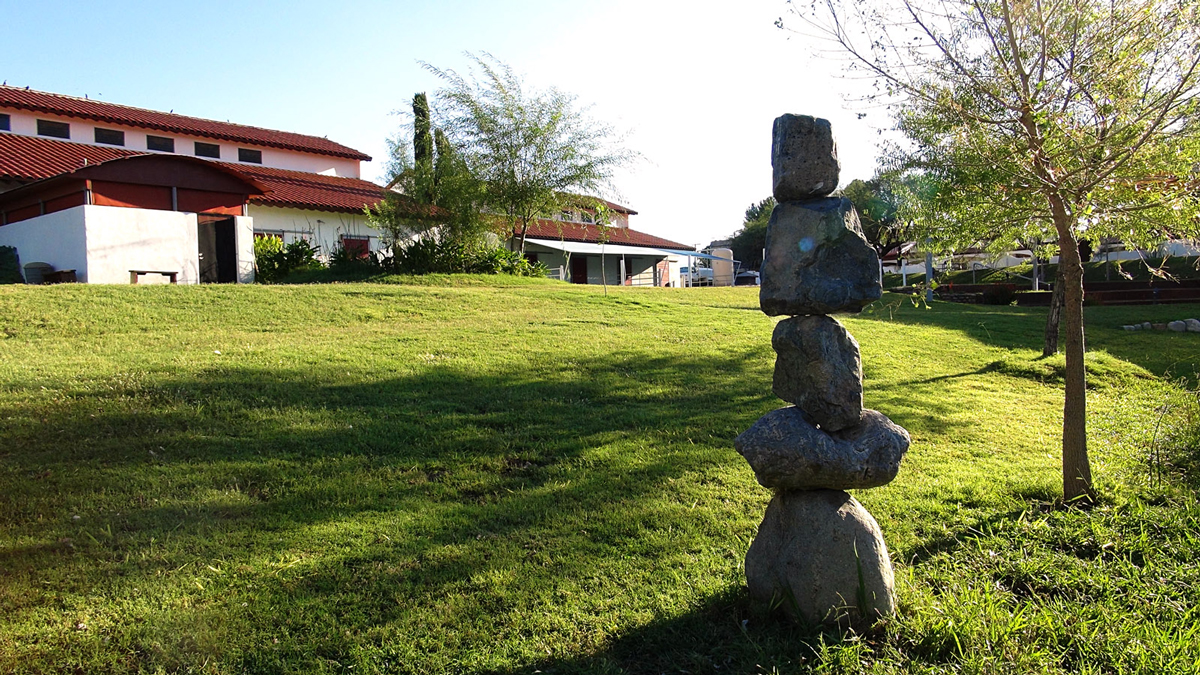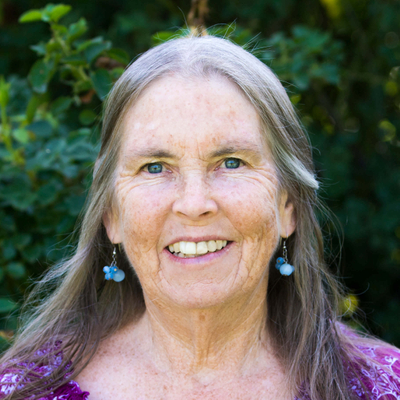Sometimes I wish I were a trained sociologist, for I would like to describe my life through that lens. For close to thirty years, I have had the unique privilege of being part of an intentional community of approximately 120 people, which has undergone a veritable symphony of evolutionary stages. One of the areas where we have done much experimentation is in finding creative and successful ways to make our physical environments clean and tidy, or as we say “in divine pattern” and “zen.”
As a spiritually-based community with its central abode at Avalon Gardens and EcoVillage in southern Arizona, Global Community Communications Alliance (GCCA) is actually much more than just an intentional community. I refer to the fact that we are guided and supported by celestial beings (similar to the devas who were, at one time, involved in the Findhorn Community in Scotland).
One of my first experiences with Celestial Overcontrol (after arriving in 1992) was to study a document called The Seven Stages of Community Alignment. It was originally given by higher celestial beings as a guide for the stages of community development for Global Community Communications Alliance (GCCA).
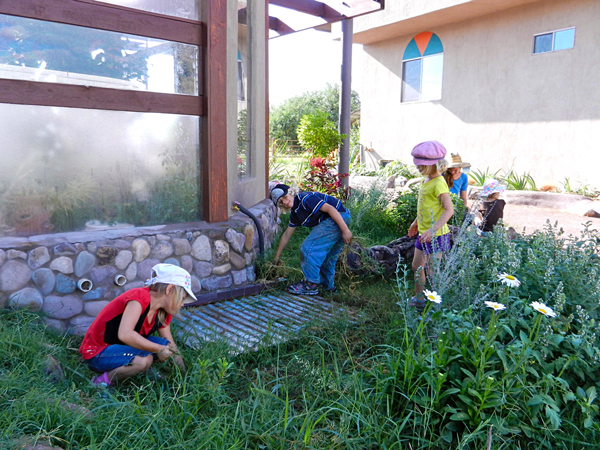 One of the topics clearly emphasized in this document is the importance of keeping everything in our environment clean and in good order. At first I was surprised to hear that this was so important, but then I began to realize that it makes perfect sense for these angels (and other personalities from higher dimensions) to feel strongly about including this in a document written for a community of people who want to create a higher culture under celestial and divinely-led guidance. I realized they must be sick to death of observing human beings trashing this planet.
One of the topics clearly emphasized in this document is the importance of keeping everything in our environment clean and in good order. At first I was surprised to hear that this was so important, but then I began to realize that it makes perfect sense for these angels (and other personalities from higher dimensions) to feel strongly about including this in a document written for a community of people who want to create a higher culture under celestial and divinely-led guidance. I realized they must be sick to death of observing human beings trashing this planet.
We are also taught that our outer environment is a direct reflection of our inner thought life and the basic state of our soul. In the higher realms of God, everything comes into greater and greater perfection within divine pattern. The planet as a whole has a long way to go to reach even a beginning stage of light and life[i], but GCCA is striving to create the seed of that reality in our community. Many people sense this when they come into the environments of our homes and businesses.
True to form, the celestials and our human elders are very clear about the expected standards, but they do not give us a formula for how to make it happen. We have to, through trial and error, figure that part out ourselves. Over the years, we have tried many systems of organization for cleaning up our act, both internally (psychospiritually) and externally (materially). I would like to share some of the more physical aspects of our journey with you now.
The Refining and Elevation of Inner and Outer Environments
We know that certain people are naturally motivated and/or experienced in creating order and cleanliness. While everyone needs to grow into this, it makes sense to have those who excel in an area to be in charge of it. So from early on, and up into now, we have “Environmental Consultants” who make periodic surveys of particular areas—indoors and outdoors—and then give feedback and training to others for upstepping those areas.
We have also learned that when designing our EcoVillage, it is always important to keep in mind that a beautiful environment fosters a consciousness in people to keep everything tidy and clean and becomes more respected. Additionally, if the people within that environment have intentions of becoming continually “clean” within themselves—in their intentions, motives, and morals—then a sense of sacredness is also present. When the spaces we live and work in are sacred, our thoughts and relationships are naturally raised up to a higher level, and new aspects of success within our lives manifest.
Living with close to 120 people in an EcoVillage can be extremely efficient in terms of pooling resources to get things done. Many willing hands make light work of projects, which go smoothly when planning in advance is thorough and supervisors/coordinators are adept at keeping the group flowing with the tasks in a balanced way. We have regular cleaning blitzes in our homes as well as big work parties to tidy outdoor zones before large events at Avalon Gardens, the campus for The University of Ascension Science and The Physics of Rebellion. We also have “Hands in the Soil” (two mornings a week) where all who can (including friends and neighbors) work together in the gardens.
Another area of great concern is that we avoid polluting the air, water, food, and ourselves by using earth-friendly products. We also practice conservation of energy, water, and other resources. Our sustainable-living-practices teams are constantly exploring and implementing ways to better utilize our resources and to do everything we do with a minimum of damage to the environment; in fact, whenever possible we aim to “leave no trace” or, even more ideally, leave the area in better condition than it was before.
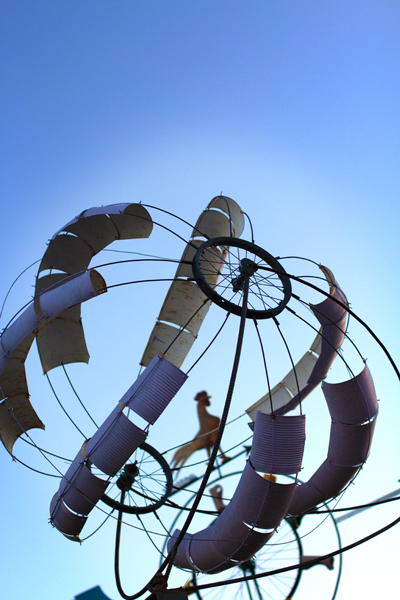 The language we use in describing certain areas reflects the pattern in which we would like those areas to be. For example, instead of a “junk yard,” we have a “sculpture yard.” Like any working farm and gardens, we have many items in storage to be used for building and other projects. Rather than throwing these items—from scrap metal, to wood pallets, to sheets of glass, to specialty equipment and parts—into messy piles, we have stacked them in interesting and orderly patterns to create an area as beautiful and tidy as possible. And, by the way, frankly it’s easier to access and more functional!
The language we use in describing certain areas reflects the pattern in which we would like those areas to be. For example, instead of a “junk yard,” we have a “sculpture yard.” Like any working farm and gardens, we have many items in storage to be used for building and other projects. Rather than throwing these items—from scrap metal, to wood pallets, to sheets of glass, to specialty equipment and parts—into messy piles, we have stacked them in interesting and orderly patterns to create an area as beautiful and tidy as possible. And, by the way, frankly it’s easier to access and more functional!
Our children are trained from a young age to participate in cleaning their rooms, their school spaces, doing their own laundry, and helping with house and kitchen chores. Young children actually love to be a part of cleaning, and it is worth spending time training them to clean and put things away, starting even at one and two years of age, when they naturally want to be involved in what the grownups are doing.
As toddlers, they can mimic in play what adults do and see by example the importance of putting things away, and as they grow, they learn more readily and are able to fold towels and rags, put away utensils, clean up the table and floor after eating, and hang up their clothes on racks built to match their size. By the time they are eight or nine years old, they are part of home kitchen cleanup crews and able to clean their bedrooms fairly well.
Practical Application in a Community Home
I live in one of our larger community homes, and I love living there because it is such a dynamic experiment in community living. A few years ago, the residents began a complete re-evaluation of how we organize the care and maintenance of our home. We had a series of meetings to discuss whether we wanted to continue organizing our teams as we had been or to change how we did our home chores and if so, what new ways did we want to try. Everyone agreed that the current methods were not optimal.
We basically had team leaders for each area. Examples of areas were: kitchen, dining room, laundry room, bathrooms, pantry, porches, solarium, outdoor yard, etc. Each team leader had a list of all the tasks needing to be done in that area and would slot appropriate household members into handling those jobs on a daily or weekly or monthly basis. So when I moved into this home, I was asked to do a whole set of chores on various teams that needed my help, and I figured out how best to get those chores into my daily routines. My specific duties worked well for me because they matched my physical stamina and capabilities, and I found that I actually enjoyed doing them.
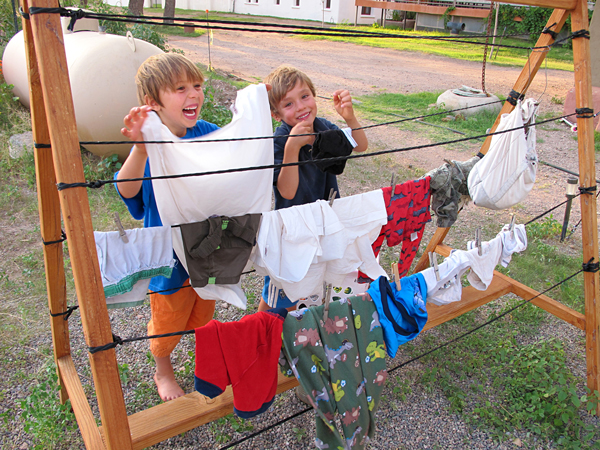 While our home seemed to be organized and tidy in some ways, it also had areas that were falling behind in cleanliness and order. We find that sometimes we humans lack a sense of ownership around certain tasks, and this causes us to not maintain the same high standard we would if we “owned” it ourselves. Technically, we actually do own it ourselves, but we find at times that only those who are in a position of leadership in a particular area go the extra mile to make sure it gets done, and gets done right.
While our home seemed to be organized and tidy in some ways, it also had areas that were falling behind in cleanliness and order. We find that sometimes we humans lack a sense of ownership around certain tasks, and this causes us to not maintain the same high standard we would if we “owned” it ourselves. Technically, we actually do own it ourselves, but we find at times that only those who are in a position of leadership in a particular area go the extra mile to make sure it gets done, and gets done right.
We have learned, from reading The URANTIA Book, that there is an order of beings called Melchizedeks who are “self-governing,” which most of us humans have not yet evolved to. In the early stages of community living, we needed to set up systems for cleaning up our lives so that everything is structured to make sure it happens—in spite of our instability and inner chaos. We need to do this with children, and often with visitors and new community members, until they mature into the systems we have developed over three decades of community living.
In our large community home, we decided to become more self-governing in how we collectively maintained it. To do this, we decided to create zones in the home and ask everyone to choose to join one zone team, plus a zone team for maintenance of their immediate hallway and bathrooms near their bedrooms. Once we had the teams of two to four people (depending upon the zone), we met and brainstormed how we wanted to organize the cleaning of our area in the best way to work with our schedules and our strengths as individuals. By being part of a “zone team,” we were taking ownership of that area. Each team has at least one leader to coordinate and communicate whatever is needed.
I believe the process I am describing here is universal, for we all live in communities, be they intentional or not. A nuclear family of mom, dad, and two kids is still a mini community. How many of us live our lives carrying out our prescribed tasks and functions without taking responsibility for anything beyond the “list” of things we have to do based on compulsion, duty, or convention? How many social and environmental problems do we ignore because they are “not our job”? How many of us choose apathy over action to make our corner of the world a better place (because, frankly, being apathetic is much easier)?
Wherever we become a part of cultural systems that give us a sense of belonging to a family, a neighborhood, a bioregion, or a planet, we no longer rely on those in authority to take care of everything. When we come to the place of caring more for the greater good than for our own self-centered agendas, we naturally seek the guidance and leadership of those who are capable of helping us to get the job done.
This zone system has been working out really well for our home. We not only have time to clean our areas but we also have time to continue to beautify and upstep them. We put up pretty lights and new plants on the front porch, the kitchen and pantry were re-organized into better functionality, the solarium re-arranged into a much nicer layout, the back porch was zenned out, and on and on it went, and continues.
Now my chores are to clean my own bedroom and both laundry rooms. I still do breakfast dishes two times weekly (someone else who enjoys cooking more than I took on the one meal prep for breakfast I was doing per week), and I still do twice monthly weekend meal prep or dish cleanup. Meals other than breakfast during the week are served in the community dining hall. Meanwhile, the rest of my beautiful home is clean and beautiful without my having to take care of it.
Of course, we often jump into doing dishes or whatever is needed in our home because we have all chosen to live a lifestyle that emphasizes service to others. Life at Avalon Gardens and EcoVillage is not about doing your job . . . and then waiting for the next person to do theirs. Spiritual Director and co-founder of Global Community Communications Alliance, Van of Urantia, has said that “eternity is about cleaning up other people’s messes” so we may as well get used to it!
Becoming an Activist for Purification
The real reason the celestials are bringing us together from all walks of life and from all points of the compass to live together in community is not to teach us how to clean well (although we do have a desire to clean up first ourselves and then the entire planet). The real purpose is to activate within us the spiritual will to become change agents for the Creator of Divine Pattern.
The only way to clean up our global mess is for everyone to become planetary citizens with a cultural ethic of stewardship. The Wikipedia definition of ethical stewardship is:
Responsibility for sustainable development shared by all those whose actions affect environmental performance, economic activity, and social progress, reflected as both a value and a practice by individuals, organizations, communities, and competent authorities.
It seems that (finally) everyone realizes that we are in the middle of a planetary crisis. No one can escape being affected by at least one of the many tendrils of systems breaking down—both environmentally and socially. Our different cultural and religious paradigms define it using different terms such as tribulation or purification, but we all know we are deep into it now.
"In winning souls for the Master, it is not the first mile of compulsion, duty, or convention that will transform humans and their world, but rather the second mile of free service and liberty-loving devotion that betokens the Jesusonian reaching forth to grasp their brothers and sisters in love and sweep them on under spiritual guidance toward the higher and divine goal of mortal existence."
~ adapted from THE URANTIA BOOK Paper 195, Section 10
There are tremendous opportunities for change and growth occurring in every realm. And at the heart of every progressive solution is the vision to collectively see the world as a unified system, which causes humanity to act as a unified team. This has been the glue that holds our community together (and makes us thrive) from the beginning. In order to collectively practice ethical stewardship, we humans have to learn to get along, and to find and listen carefully to our spiritual elders.
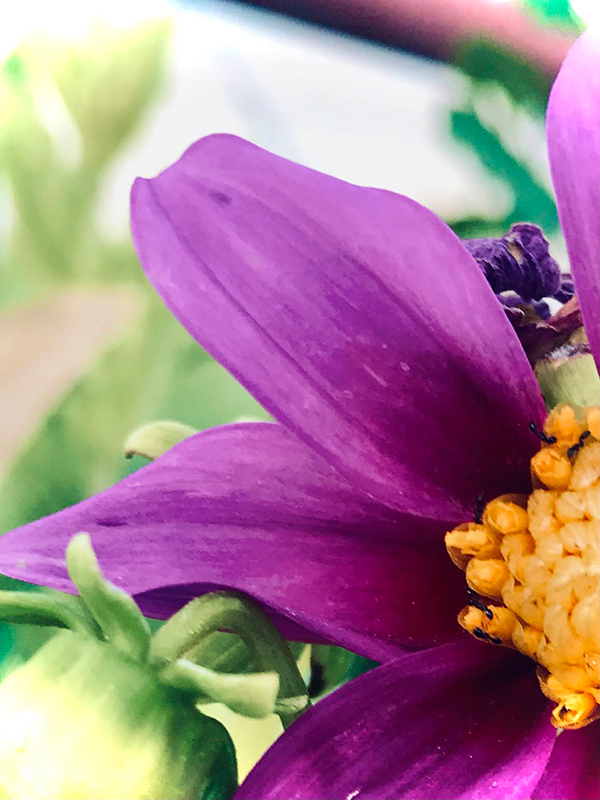 The cost of activism in the 2020s is all about waking up and taking personal responsibility for doing whatever the Creator calls us to do to bless the people in our lives. After that, we can only walk in faith, doing the good we are called to do and anticipating the eventual return of Christ, who will bring our fallen and dying planet out of its tailspin and into the first stage of light and life.
The cost of activism in the 2020s is all about waking up and taking personal responsibility for doing whatever the Creator calls us to do to bless the people in our lives. After that, we can only walk in faith, doing the good we are called to do and anticipating the eventual return of Christ, who will bring our fallen and dying planet out of its tailspin and into the first stage of light and life.
Niánn Emerson Chase, pastor and co-founder of Global Community Communications Alliance has given many beautiful teachings, in The University of Ascension Science and The Physics of Rebellion, on the archetype of the Infinite Spirit (Mother aspect of God), which is needed to bring the world into balance. One of her teachings includes the following:
The Infinite Spirit is the God of Action. This is the circuitry that informs us of the needs of others so we can act in divine service for others. With the archetype of the Universe Mother Spirit (an expression of the Infinite Spirit), it becomes common sense to pay attention to everything in the environment so that health is restored and sustained. Cooperation is the active aspect of this archetype.
Van of Urantia succinctly summed up the need for planetary cooperation with the following statement:
If everyone cared more about the song than their own individual part, we would have a band.
The “change point” that happened in my community home a few years ago inspired all of us to become ever more aware of that which is “out of place” within ourselves as well as within the world. As together we became proactive in cleaning up our acts locally, we are also becoming more involved in joining other groups of people who are actively trying to bring about some change for more sustainable ways in the environment, as well as in the political and social realms.
[i] Light and Life: One of the marvelous successive ages of physical security, intellectual expansion, and spiritual achievement for evolutionary worlds to be settled in as the inhabitants achieve more heavenly values and relationships in God. There are typically seven progressive stages of light and life that an evolutionary world evolves through. [From the Glossary of The Cosmic Family, Volume 2, available from Global Community Communications Publishing in Tubac/Rio Rico, Arizona, USA.]

